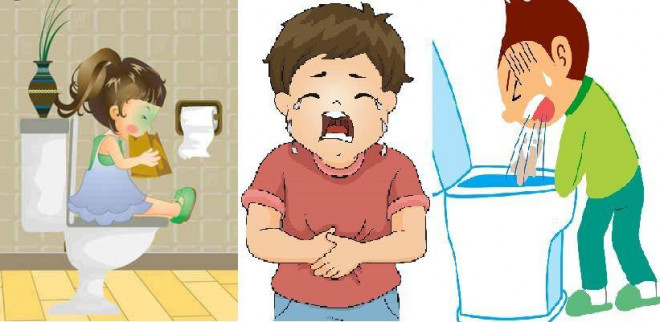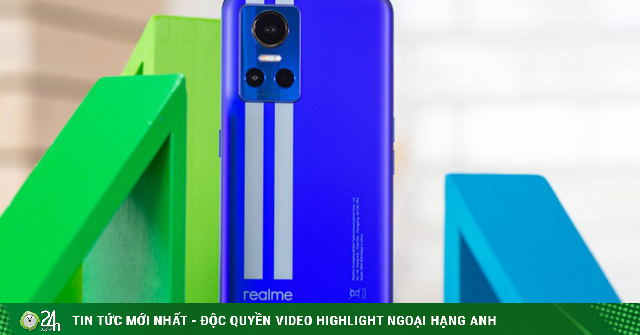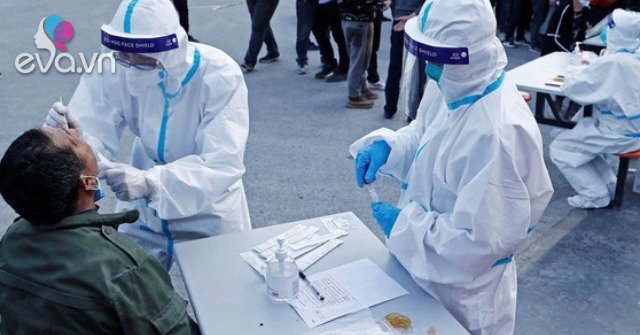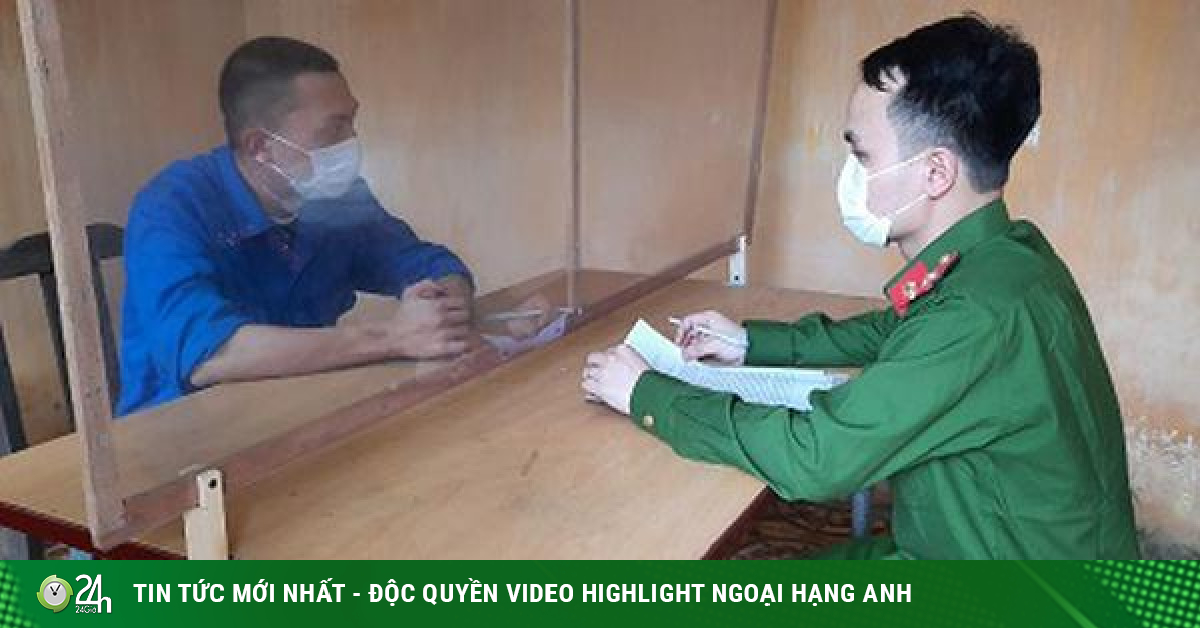The doctor clearly pointed out what parents should not do when their children vomit, to avoid harming their children-Health and Life
Experts recommend, when your child vomits, do not use antiemetics; Do not arbitrarily take antibiotics without a doctor’s prescription to avoid aggravating the child’s condition.
Recently, there are many parents sharing about their children vomiting for unknown reasons, many cases with abdominal pain and diarrhea. Many of them had to take their children to the hospital for examination because they were too worried.
According to doctors, there are many causes of abdominal pain and vomiting in children. Depending on different groups of causes, a child’s condition can be acute in a few days or last for weeks to months. Acute abdominal pain and vomiting are often indicative of many dangerous diseases that require urgent intervention.
Causes of abdominal pain and vomiting in children
Illustrations
According to Assoc. Prof. Dr. Nguyen Thi Viet Ha, Head of Gastroenterology Department, National Children’s Hospital, gastrointestinal infections are the most common cause of abdominal pain and vomiting in children, especially children with acute gastroenteritis – enteritis caused by viruses such as rotavirus, norovirus, calicivirus, adenovirus, COVID-19.
Gastroenteritis can occur when a child eats contaminated food or water, or plays with contaminated hands or toys. In particular, the hot summer weather increases the growth of flies, mosquitoes, cockroaches, ants, etc., leading to the spread of pathogens.
Along with that, summer is the time when children and their families can travel more, use prepared foods or street foods that are prone to bacterial infections or toxins such as meat, fish, and seafood. , ice cream, eggs, milk and vegetables increase the inflammation of the gastro-intestinal tract due to bacterial infection.
Also according to Assoc. Prof. Dr. Nguyen Thi Viet Ha, vomiting caused by infectious gastroenteritis often starts suddenly and recovers quickly within a short period of time. 24 hours. Other manifestations such as bloody diarrhea, fever or abdominal pain will appear at the same time or after 12-24 hours.
In addition to gastrointestinal infections, children with food poisoning also have nausea and vomiting immediately, sometimes even vomiting blood, abdominal pain, diarrhea many times loose stools may have bloody stools. The child may have no fever or a fever over 38°C.
In addition, children vomiting can also be caused by emergency surgical diseases that need to be operated quickly such as intussusception, appendicitis, intestinal obstruction …
Caring for children with colic and vomiting at home
Assoc. Prof. Dr. Nguyen Thi Viet Ha advises, when a child has a stomach ache, the first thing parents should do is reassure, comfort and let the child lie down. Do not use pain relievers because they can obscure the necessary signs to detect the disease, making it difficult to diagnose.
Children need to drink enough water to avoid dehydration when vomiting or diarrhea a lot. It is best to give your child an oral rehydration and electrolyte solution (Oresol). There are many preparations (tablets, powder packs) to make Oresol solution, parents need to mix according to the instructions. Do not give your child too much at once, but patiently give him or her to drink slowly, in small sips, 50-100ml of Oresol after each time the child vomits or has diarrhea.
If the child has been taking Oresol according to the principle of little, but still vomiting, the state of diarrhea is still a lot, parents need to quickly take the child to the hospital to be rehydrated, electrolytes with intravenous fluids.
Children should be given liquid, easily digestible foods during the illness and return to normal and eat more when the child recovers. If the child does not spit up for 12-24 hours, the baby can eat and drink normally but still give him plenty of water. Start with foods that are easy to digest like cereal or yogurt.
If the child has a fever of 38.5oC or higher, parents should use common antipyretic drugs such as Efferalgan, Hapacol, Tylenol.
“Vomiting and diarrhea can increase infection in the family. Parents should pay attention to prevent infection in family and people around by washing hands with soap and water after changing diapers and clothes for children. Children, before and after preparing food, keep sick children out of school to help limit the spread.Assoc. Prof. Dr. Nguyen Thi Viet Ha recommended.
Note: Do not self-administer anti-vomiting and anti-diarrheal drugs. Because vomiting and diarrhea are a protective action of the body to expel pathogens from the body. Using anti-vomiting and anti-diarrheal drugs inappropriately will lead to decreased intestinal motility, reduced absorption and prolongation of bacteria’s stay in the digestive tract, toxins that cause food poisoning, making children full. , abdominal distension, and prolonged illness.
Do not arbitrarily take antibiotics without a doctor’s prescription.
When should a child with vomiting be brought to the hospital?
Take your child to the hospital if vomiting persists for more than 24 hours or if the child vomits continuously, vomits everything after eating or drinking, the vomit is green or yellow, or has bright red blood or clots.
Along with that, diarrhea often occurs at the same time or after vomiting, abdominal pain. Children need to be taken to a medical facility if they have loose, watery stools many times a day, bloody stools or signs of dehydration.
at Blogtuan.info – Source: 24h.com.vn – Read the original article here





